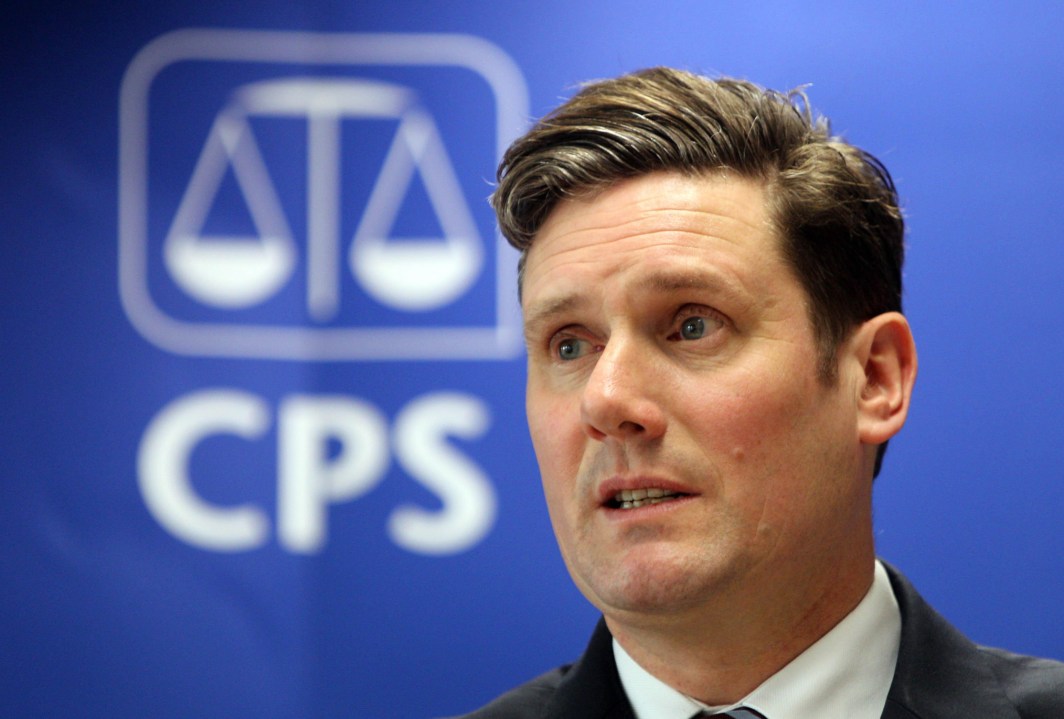
Keir Starmer surprised his colleagues during his first week in power when he appointed his old friend Richard Hermer KC as Attorney General. Emily Thornberry, the holder of the role in opposition, was banished to the backbenches. Senior Labour figures had sensed something was afoot. ‘Sue [Gray] was keeping those transition talks under lock and key,’ recalls one Labour bigwig.
The idea was that Starmer would have a trusted, authoritative voice to turn to on legal matters. The pair are old pals; Starmer even gave a toast when Hermer took silk in 2009. His appointment, however, has come with baggage. Hermer’s former clients include Sri Lankan refugees to the Chagos Islands and ex-Sinn Fein leader Gerry Adams. He acted, too, for the human-rights group Liberty in the case of British-Bangladeshi Isis bride Shamima Begum.
‘Can you take on or prosper in a world of Farage, Musk and Trump if you play by the rules?’
Hermer is seen as playing a key role in the government’s more controversial choices. There was the decision to withdraw the UK’s objections to the International Criminal Court for the arrest warrant of Benjamin Netanyahu. He also played a role in the beleaguered Chagos Islands deal, having taken the view that Britain had an ‘obligation’ to hand them to Mauritius, even though the International Court of Justice’s opinion on the matter was not legally binding.
Rarely a day goes by without a story or question regarding a potential conflict of interest for Hermer. After it was revealed that Adams could be awarded compensation for his ‘unlawful’ detention because the UK government was repealing parts of some existing legislation, Hermer wouldn’t say whether he gave advice approving the change. There was yet more astonishment in parliament when he refused to tell a select committee whether he had represented Adams in a conditional fee agreement. (A spokesman for Hermer says all processes are being followed.)
A recent Policy Exchange paper (supported by a former Lord Chancellor and former advocate general for Scotland) makes the point that Hermer shouldn’t rely on confidentiality rules to escape questions on conflicts of interest. Shadow justice secretary Robert Jenrick has his sights set on Hermer, hoping to send him back to the courts. Allies of the former Tory leadership candidate have begun describing him as the ‘Herminator’.
But as Hermer becomes a bogeyman for the right, what may concern him more is the criticism coming from his own side. It goes to the question of what type of government Starmer ought to lead. Should Starmer be a ‘Mr Rules’ figure who pays due respect to the world order despite few others following suit – or should he lead an insurgent government that’s willing to shake things up?
As the difficulties of government dawn on Labour, more in the party are warming to the latter option. Starmer’s Chief of Staff Morgan McSweeney is one of them. Yet in the ‘let’s play nice’ camp, Hermer is head prefect. ‘He comes across as very charming and reassuring,’ says one Labour MP. ‘He’s very “I’m here to help” but I’m not sure he is always helping.’ A minister asks: ‘Does he actually get what his job is?’ When it comes to the blocks on government action, the rule of law is critical. Procedures such as judicial review have increasingly become a major barrier, hampering decisions and investment.
Hermer gave a set-piece speech last year in which he asserted the UK would use law as its central guiding principle in its domestic and international policies. One of his first acts was to update the Attorney General’s guidance on legal risk on the grounds it was too risky. He said the old guidance meant ministers were ‘being advised that there was a respectable legal argument’ for a particular policy, but weren’t being properly informed it ‘was highly likely to be unlawful’ – even if they ‘wouldn’t be struck off for advancing such a poor argument’ in court.
The suggestion being if there is a high chance of a loss in court, don’t risk it. Hermer is of the view that by avoiding lengthy and costly court battles you can deliver more efficiently for the public. However, as ministers try to push their agendas through against legal challenges and resistance from the civil service, some argue there is a need to do just this. ‘On judicial review, we should just push on and ignore certain things,’ says a minister. ‘It’s gone too far. We can challenge it. It is destabilising the running of government.’
It was reported this week that Rachel Reeves wants a third runway at Heathrow. Sadiq Khan has already suggested he might bring legal action to thwart such an attempt, as the courts could block it on environmental grounds. So, which is the priority: growth or adherence to legal culture? On a practical level, a government that’s promising new runways and demolishing bat tunnels will have to clash with the courts at some point. Will Starmer be able to tell his friend that the law, on this occasion, is an ass? On domestic issues, MPs complain that the government’s deference to the law and human rights legislation ties their hands on the deportation of grooming gang perpetrators.
As one MP puts it: ‘Can you take on or prosper in a world of Nigel Farage, Elon Musk and Donald Trump if you play by the rules? Break the rules. Change the rules.’ There are hints that even Starmer seems to be finding his inner rebel. His team have noticed over the past few months that he’s become more questioning of the structures in which he previously worked. In his speech on Southport, for example, he spoke of state failure. MPs noted it as a tone shift.
Now No. 10 plans to take action to reduce some legal hurdles. Steps are planned in Downing Street to reduce the number of judicial reviews that block infrastructure projects. Aides have been looking to the 2024 Banner review, commissioned by the Tory government, for inspiration. Preliminary work to understand the constraints judicial reviews would place on delivery of rapid infrastructure projects took place prior to the election. ‘Judicial review has allowed de facto lawfare,’ says a Whitehall figure.
But this isn’t easy. When Boris Johnson’s team clashed with the courts in the early days of his premiership, they would tear their hair out, declaring that if the Elizabethan barrister Sir Edward Coke couldn’t find a solution, how would they? In a way, Starmer is the best-placed prime minister to fight legal overreach: he knows the system from the inside. The question is whether he – or his AG – have the stomach to see it through.









Comments